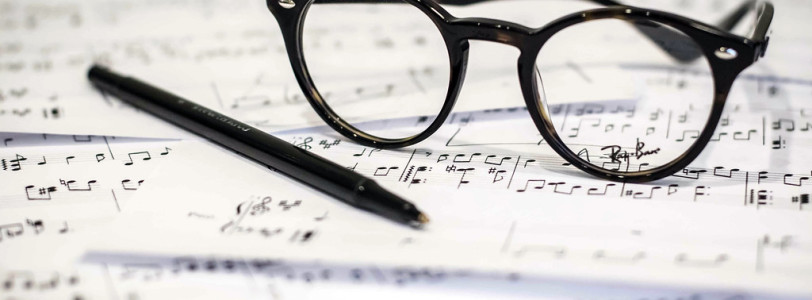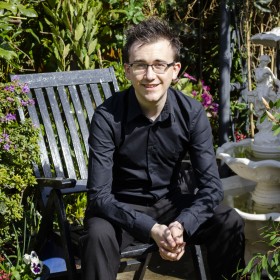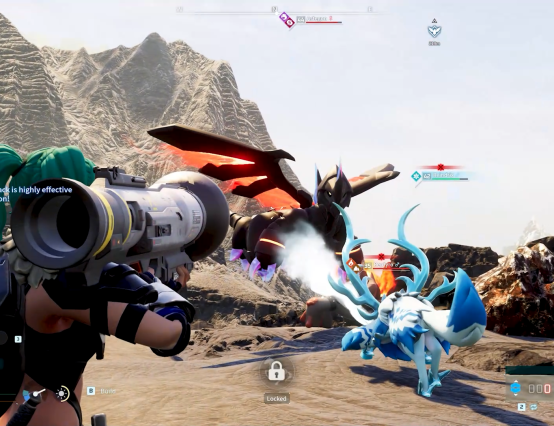Composition is one of the most rewarding musical activities you can get involved in. There is something uniquely satisfying about crafting a whole new piece of music out of, seemingly, nothing at all but pure inspiration. Of course, this is a bit of a myth. Nobody creates out of nothing (I'll let the theologians fight that one out), and there are frameworks, rules, and influences that you inevitably draw from.
This is a good thing! Entering into composition thinking it's all summoning music from the aether like Mickey Mouse in Fantasia can make the whole thing seem horribly intimidating and ephemeral. Frameworks do not have to mean you're hemmed-in either: there's more freedom in consciously deciding to break the rules than simply not knowing they are there (I'll let the philosophers hash that one out — I'm such a provocateur).
There is more to learn about composition than I could hope to write here; it's like a great mansion of winding corridors, false walls, and Escherian staircases. What I can do, though, is walk you up the drive and show you where the doorbell is. I've had the privilege of growing up surrounded by, and learning in, a number of musical styles — jazz, rock, folk — but with the caveat that I am, first and foremost, classically trained, and accordingly, that's generally how I approach composing. The advice I offer here hopefully holds true across genres, but bear in mind your own field might have its own unique quirks and practices that require their own approach.
Getting Inspired
Finding inspiration for composition isn't quite as simple as just finding music that you like; you have to find music that you like, and that you want to build something from. I might like Black Sabbath, or Dvořák, but I've never been inspired to write like either of them. My own compositions are often based on Irish folk music, a genre I both like and engage in frequently.
Sometimes your urge to create something will sit in-between two genres, in which case the wonderful world of fusion awaits you. You'll probably find that you're in good company, as even the most unlikely merging of genres are being explored somewhere. I will always point to Tiësto's rendition of Adagio for Strings by Samuel Barber to show that in extreme cases, and for a more subtle fusion, I personally love Phillipe Barnes' and Tom Phelan's blend of jazz and Irish folk. Exploring how these artists meld together genres can often be a good way to garner inspiration for your own work.
You might find that nobody is doing quite what you want to do, which is great! You might find that someone is doing kind of what you want to do: this is also great. That might seem counterintuitive, but either scenario gives you the opportunity to figure out your "voice" — something many composers concern themselves a lot with. You can either be seeking to break new ground, or refine or make your own what others have laid the groundwork for. It might be something else entirely. The secret is that "finding your voice" is not a mystical finding of oneself, like a religious leader being "called by God". Your voice is something that emerges over time, something that doesn't appear fully formed but has to be chiselled into shape over time and with experience.
In short, don't worry too much about your compositional voice. I know — saying that on this website! Find music you like, and you'd like to make, and go make it.
But... how?
Ah, yes, knowing how to do that would probably help.
I'll tell you this straight out the gate: schools are terrible at teaching composition. Absolutely awful. It's not really their fault, at least not alone; if you want to blame someone, I'd point that squarely at the exam boards and their perpetual insistence on standardisation and holding up of functional harmony. I was told as a GCSE student I'd get marked down for writing in a mode in my folk-inspired composition, as "they'll think you don't know how to write in major or minor". Yep. No modal writing allowed in a folk piece. Bonkers. The composition modules of the major exam boards aren't fit for purpose.
So where does that leave you? Go seek out your compositional education from other sources is my advice. If you want classical training, there are some great composers who put out tutorials on the internet. Robert Hutchinson's website was an invaluable source that helped me from school through doing an undergraduate degree, and David Bruce's channel on YouTube is also a great resource. 12-tone even has a great video on how he'd learn music theory if he got the chance to start from scratch: which may well be where you are. Want to write for film? Ryan Leach has some great tutorials. Video-games? 8-bit Music Theory will see you right. I'm afraid my knowledge of resources for other genres is limited here, but it's the internet after all: seek and ye shall find.
Get Yourself Some Software
Writing music out by hand, whether you're using Western classical notation or not, is only going to get you so far. Fortunately, there are paid, free, and freemium options, so there'll be something for you regardless of budgets. The paid ones also often have substantial student discounts. Steer clear of subscription services (oh Sibelius, what happened to you?). For free notation software, your best option is almost certainly MuseScore; originally notable for being open-source and free, recently its improvements have brought it on-par with the paid big-hitters in music notation.
If you've more budget and time to learn slightly more sophisticated software, you could go for Finale or Dorico (I personally use the latter). Both of these have good student discounts, but they are still a fair upfront investment. I can't in good faith recommend industry-standard Sibelius due to the afore-mentioned subscription model Avid have switched to, as well as just how terrible they are as a company. Jazz musicians should definitely consider getting the iReal Pro app, as that allows you to play over the changes (chord progressions) of an enormous array of jazz standards, and allows you to write your own: great for getting inspired and trying out your own ideas. If you're adept with a bit of programming, you might like the ABC (useful for folk musicians particularly) and Lilypond markup languages, which are both free, if slightly less flexible or intuitive.
You might well not need to use notated music (much) in your genre (pop, rock, hip-hop, etc.). In your case, it's probably more useful to get acquainted with Digital Audio Workstations. DAWs will allow you to record your work and layer different recordings on top of each other and build up your songs that way, instead of writing your music out beforehand, which lends itself to a more improvisatory or spontaneous means of composition. Offerings here are more platform-specific. I'm a Mac user, so I'd recommend Garageband for a free option, and Logic Pro if you're willing to spend a little money (again, look at Apple's student offer on their Pro Suite). If you're on Windows, for free options you'll want to look at Audacity (free and open-source, we love to see it) or Reaper (not technically free, but has an unlimited free trial). If you've some money to spend, you'll find a dizzying array of options, but Fruity Loops, Cubase, Ableton Live, and PreSonus Studio One are some stand-outs (and lots of these are also available on Mac if you're so inclined).
Hopefully, this gives you a good starting point: get an idea of what you want to write (and why), learn the rules and structures you need to write in that style, and get the tools you need to actually write the thing.
The rest is the part where you get to unleash your creativity and have fun with it. The door to the mansion's open; I hope you enjoy getting lost in its corridors like I do!









0 Comments